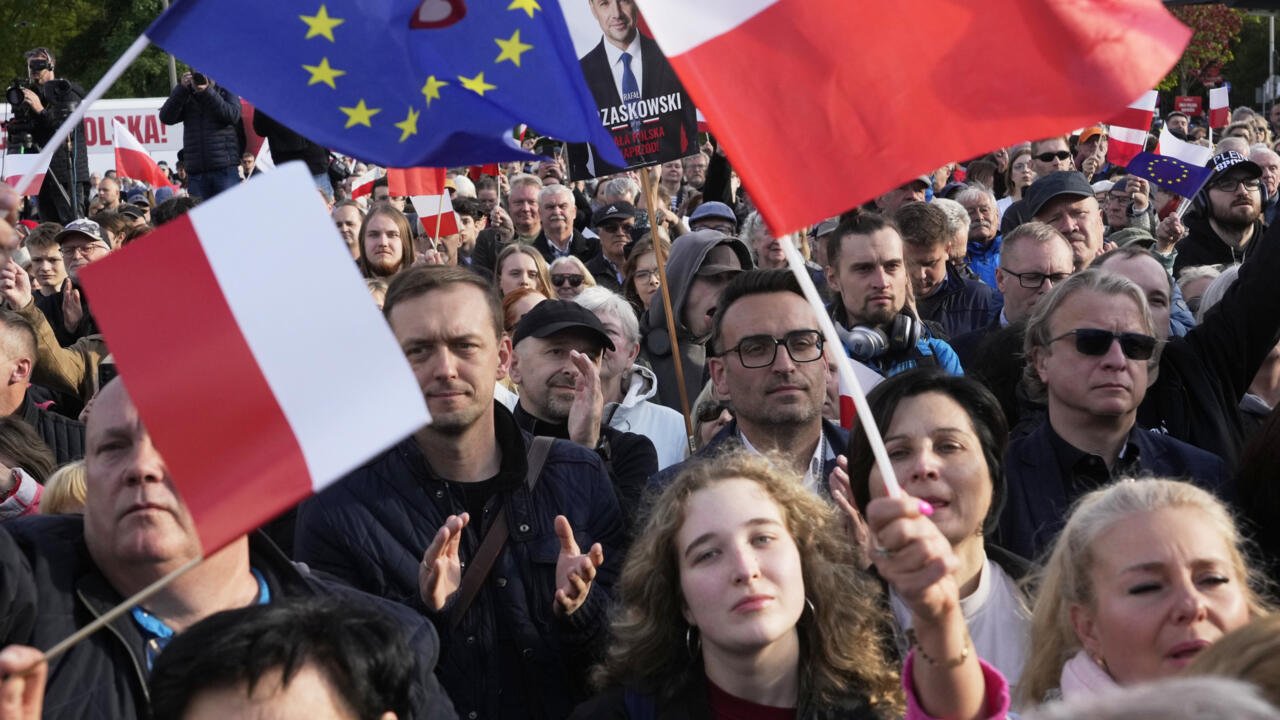Polish intelligence agencies are recording a surge of cyberattacks and disinformation campaigns backed by Russia ahead of the second round of presidential elections on June 1, as reported France24.
After the first round, in which Warsaw’s mayor Rafał Trzaskowski, a pro-European candidate, received 31.36%, and his nationalist opponent Karol Nawrocki got 29.54%, foreign interference has become even more aggressive.
According to Polish authorities, pro-Russian hacker activity has intensified in recent days. Prime Minister Donald Tusk reported that two days before the vote, the websites of the ruling Civic Platform party, as well as those of the left-wing and agrarian PSL parties, were hit by a coordinated attack. The group behind this is linked to Russia and operates via Telegram.
The pressure doesn’t stop there. The cybersecurity agency NASK has been trying for several months to counteract interference using the “Cyber Umbrella” platform. This system allows citizens to report fake news and receive verified election information. The program is part of Poland’s large investment in cybersecurity — the country has allocated over 2 billion euros for this.
Nevertheless, the first round showed how difficult it is to resist attacks amid political instability and a sharp rise in conspiracy theories. Analyst Saman Nazari said Polish authorities are acting effectively despite the extremely challenging geopolitical situation. Expert Janusz Wojtowicz noted that the internet is flooded with fake news claiming Poland is already fighting on Ukrainian territory, has given all its resources to the Ukrainian Armed Forces, that Russia seeks peace, while the West wants war. The aim of such disinformation is to confuse people and demotivate voters.
There is particular concern about the growing popularity of far-right candidates. More than 20% of votes in the first round went to politicians with extremely conservative and nationalist views. One of them, Sławomir Mentzen, received nearly 15%, and the extremist Grzegorz Braun, known for anti-Ukrainian and anti-Semitic rhetoric, over 6%. After the election, his supporters have been actively boosted by bots and trolls online.
Minsk has also joined the interference. Belarusian state radio actively promoted the pro-Russian candidate Maciej Maciak, interviewed him, and urged Poles to sign petitions for him — all in Polish. According to analysts, TikTok restricted access to the Belarusian channel for EU users only last week — after it had already done damage.
Poland is fighting interference through mobilizing civil society and using digital tools. Experts admit that “Cyber Umbrella” is not perfect but see it as an important mechanism for defending democracy. To handle internal threats effectively, the program must efficiently use social media algorithms and reach a broad audience.
The stakes are extremely high — not just for Poland but for the entire European Union and NATO. The choice Poles make on June 1 will be shaped not only by the candidates but also by whether they can withstand the cyber pressure from abroad.





















